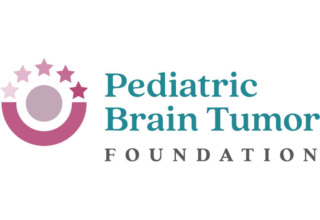Report documents the experiences of pLGG patients, survivors, their families, and caregivers to inform future drug development for pLGG, the most common brain tumor type in children
New York- August 5, 2024- The Pediatric Brain Tumor Foundation (PBTF) announced the publication of its new Voice of the Patient report, documenting the impact of pediatric low-grade glioma (pLGG), and the firsthand experiences of patients and their families and caregivers. PBTF has submitted the report to the FDA, and will share it widely to inform the development and evaluation of future treatments for pLGG. The information in the report draws from pLGG patients, survivors, their families, caregivers, researchers, and FDA representatives, as shared in an Externally led Patient-Focused Drug Development (EL-PFDD) meeting February 23, 2024. The report speaks loudly and clearly tothe tremendous need for new treatment options that address the unmet medical needs in the pLGG community.
During the February EL-PFDD meeting participants discussed the profound impact that this disease and its symptoms have on people’s daily lives, experiences with currently available treatments, and hopes for future treatment options. The meeting, and subsequent report, ensure that patient voices are incorporated into drug discovery and evaluation.
“The immense physical and psychological burdens caused by pLGG have never been clearer,” said Courtney Davies, president and chief executive officer of the Pediatric Brain Tumor Foundation. “We hear firsthand about the tremendous needs and desires of those affected by this disease and are proud to lift up their voices. This publication supports the discovery of new, accessible treatments that we hope to be effective against pLGG, while offering patients a higher quality of life than they experience with many current options.”
“This report lays groundwork to improve the experience of people living with this disease,” said Dr. Sanjay Gupta, CNN’s chief medical correspondent, one of the country’s leading neurosurgeons, and a member of PBTF’s Board of Directors. “I believe it shines a much-needed spotlight on the wide-ranging and extensive challenges that this type of tumor causes for patients and their families, and I am hopeful that this moment is a significant milestone for this community.”
pLGGs are a diverse group of brain tumors affecting children and adolescents and collectively are the most common type of pediatric brain tumor. Despite being widely considered “benign” tumors with high survival rates, children diagnosed with pLGGs often face a wide spectrum of serious physical and mental health conditions that they may have to live with for the rest of their lives. In some cases, these tumors cause complications leading to fatal complications. While advances in molecular biology have paved the way for the development of some targeted therapies, there remains a dire need for more treatment options and further innovation in pLGG treatment research. The report’s findings show the need for treatments with less toxic side effects and treatment paths that will help preserve patient’s functional and cognitive abilities, enabling them to lead healthy and productive lives.
The content of the pLGG Voice of the Patient Report is derived from the Externally led Patient-Focused Drug Development (EL-PFDD) meeting PBTF hosted February 23, 2024. The virtual EL-PFDD meeting included remarks from an FDA representative, two brief clinical and treatment overview presentations by pLGG medical experts, patient/caregiver panels, and extensive audience discussion sessions about pLGG symptoms, the disease’s impact, and treatment. In addition, PBTF gathered qualitative input from caregivers and patients over a period of several months. While these findings will undeniably resonate with people who have past and current experience with pLGG, the comprehensive documentation of these findings and their formal submission to the FDA represents a landmark in the public dialogue to date around pLGG.
Key takeaways of the pLGG Voice of the Patient Report:
- pLGGs have profound and far-reaching impacts on the health and long-term well-being of the child and entire family.
- Many affected children suffer extensive physical and mental health effects, not only from the tumor itself but also from multiple surgeries, extensive chemotherapy, and severe side effects.
- pLGGs drastically diminish quality of life by negatively impacting normal childhood development and essential activities such as school, sports and social interactions, with lasting impacts both in childhood and later life.
- Molecular insights have led to targeted treatments, which offer hope for some, but there remains a critical need for effective and tolerable treatment options for these children.
- Evaluating treatment success needs to go beyond assessing tumor response and survival rates to also focus on the capacity for these children to lead fulfilling, healthy and productive lives into adulthood.
The EL-PFDD meeting and Voice of the Patient Report were made possible by the families who participated and shared the stories of their children’s journeys with pLGGs and the profound impact on patients, parents, siblings, and other family members. PBTF is grateful to these families and thanks them for their participation in the meeting and commitment to improving the lives of those affected by pLGGs.
PBTF also thanks the following supporting organizations: The American Brain Tumor Association, Brain Tumor Network, Making Headway Foundation, and Children’s Brain Tumor Foundation.


